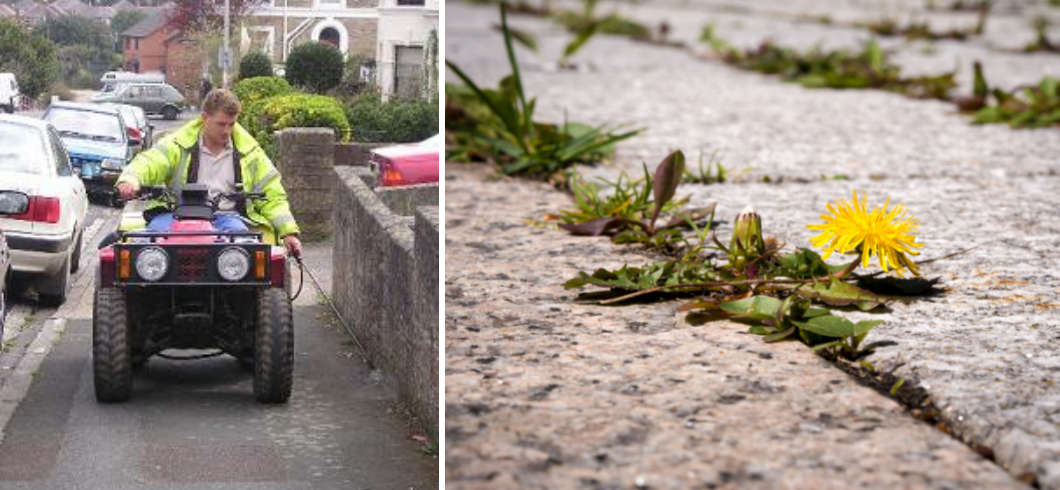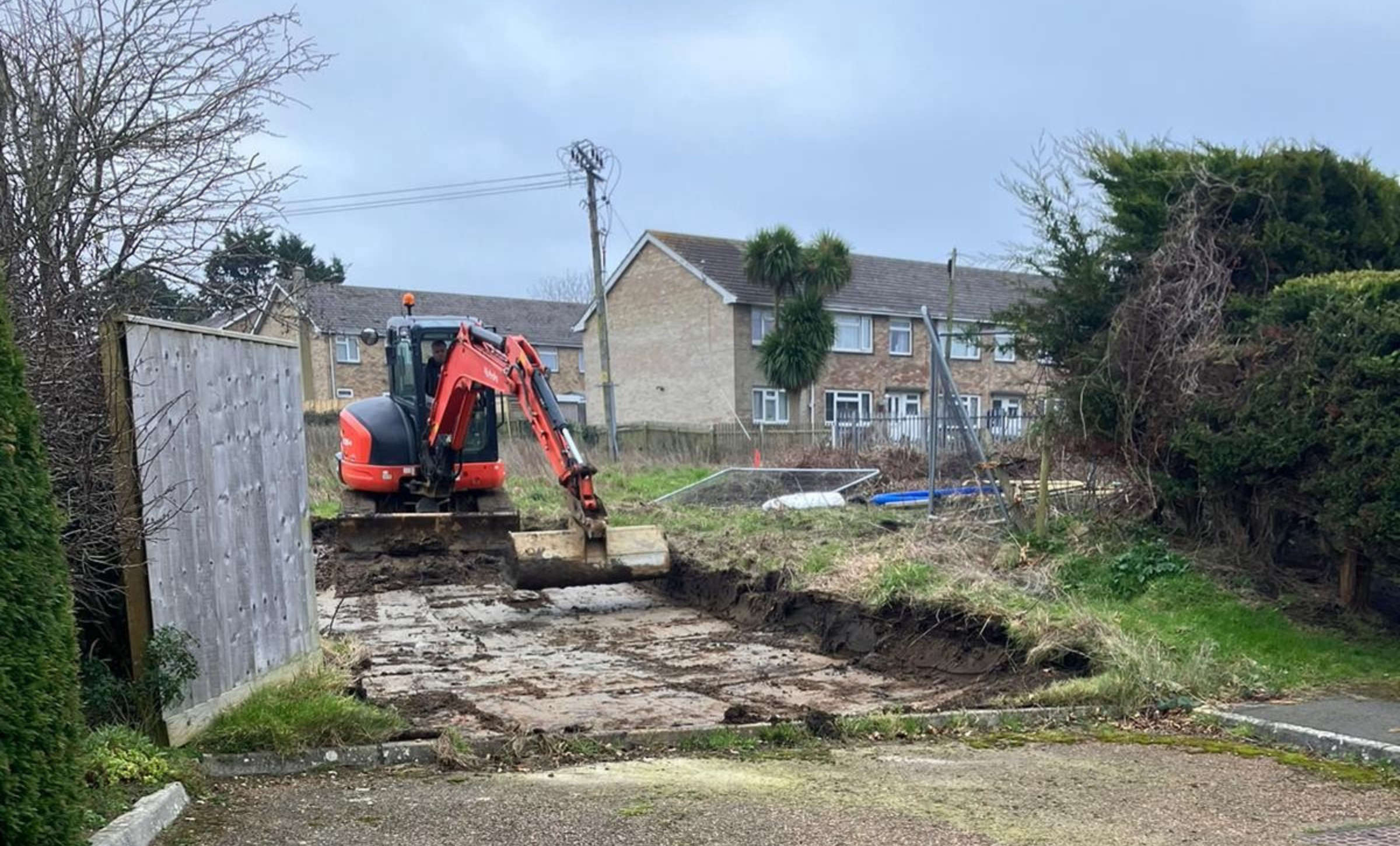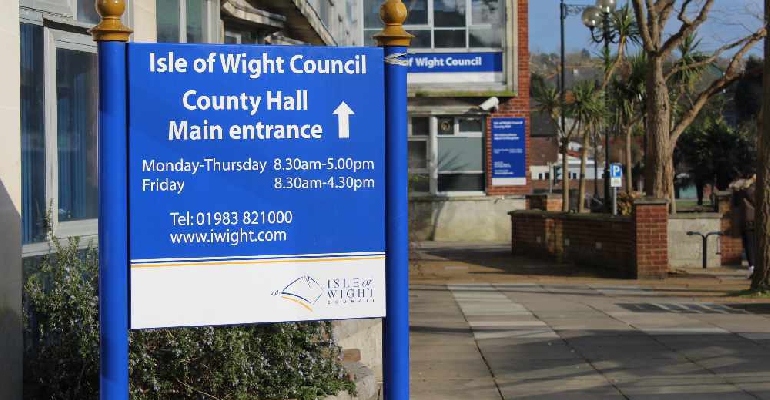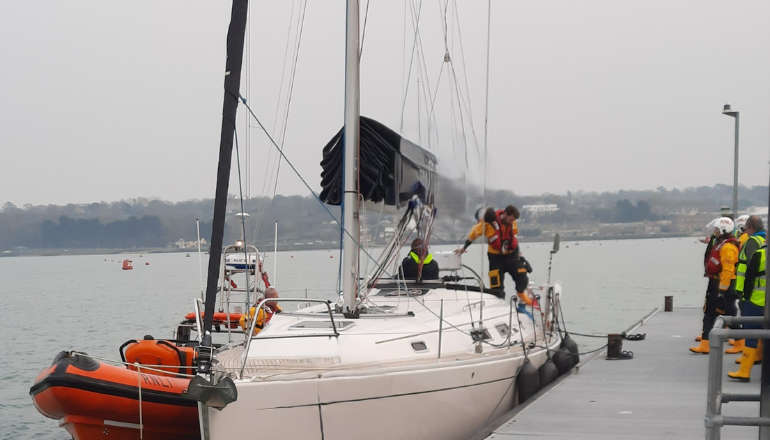
A controversial chemical weedkiller is to be used on the Isle of Wight's streets once again, less than a year after it was scrapped.
Island Roads, contractor on behalf of the Isle of Wight Council, said it received complaints that its 'alternative approach' to weeding was not as effective.
It said it will therefore reintroduce the use of Glyphosate.
A spokesperson for the company said:
"Despite our best efforts and investment, at the height of the summer we had more than a dozen staff dedicate to weeding, residents have also reported a proliferation of weeds on the network since the new approach was adopted.
"In short, regrettably we are unable to meet our contractual requirements to control weeds on the network using manual labour and organic herbicides."
Previously quad bikes were used by contractors to spray the chemical, but, following 'local feedback', a new approach was trialled last summer.
It focused on hand weeding and some spraying, using a non-glyphosate-based
Glyphosate has split opinion among experts, with some concerned it is harmful to both humans, insects and the environment.
Germany is planning to phase the chemical's use out by 2023.
Island Roads said it will use a highly diluted form, as before.
“As a company we take our responsibility to the environment extremely seriously and, in partnership with the Council, keep our practices under review to ensure we continue to provide effective and responsible weed control as part our work to maintain a safe and accessible road and footway network."
Councillor Phil Jordan said:
""There is a legal obligation on us, as the highway authority, to ensure that roads and pavements are safe.
"We were pleased with Island Roads initiative to trial the use of other methods instead of chemical weed killer. This was a useful exercise, but the results were not sustainable nor successful in managing the problem we face of dangerous levels of weed growth.
"We agree with Island Roads that for now, the use of a chemical-based weed control is a way forward for a controlled approach to maintaining both safety and preservation of the condition of our roads and footways.
"We are mindful that other local authorities have also trialled non-chemical weed control methods but have returned to using chemical herbicides due to the ineffectiveness of alternative methods.
"Nonetheless, the use of other suitable methods and products is always being researched and considered; and it may be that in future seasons we are able to find an alternative approach that is sustainable and effective to deal with the extent of the problem we face.”

 Ventnor Woman Charged With Firearm Offence
Ventnor Woman Charged With Firearm Offence
 "A clear Potential That Harm Has Been Caused" - Major Housing Development "Invalidated"
"A clear Potential That Harm Has Been Caused" - Major Housing Development "Invalidated"
 Former Public Toilets Conversion Scheme Withdrawn After Wroxall Parish Council Backlash
Former Public Toilets Conversion Scheme Withdrawn After Wroxall Parish Council Backlash
 Former Trade Union Leader Appointed By Island's MPs To Look At Ferries
Former Trade Union Leader Appointed By Island's MPs To Look At Ferries
 Hampshire And Isle Of Wight Police And Crime Commissioner Announces Intention To Stand For Mayor
Hampshire And Isle Of Wight Police And Crime Commissioner Announces Intention To Stand For Mayor
 Two-Bedroom Apartment Could Be Installed Behind New Laundrette
Two-Bedroom Apartment Could Be Installed Behind New Laundrette
 Isle Of Wight Pupils Set Sail To Compete Against Hampshire’s Top Young Athletes
Isle Of Wight Pupils Set Sail To Compete Against Hampshire’s Top Young Athletes
 Still Time For Island Good Causes To Apply For Foundation Funding
Still Time For Island Good Causes To Apply For Foundation Funding
 Three Arrested Following Reports Of Woman In Possession Of Firearm In Ventnor
Three Arrested Following Reports Of Woman In Possession Of Firearm In Ventnor
 Isle Of Wight Donkey Sanctuary Welcomes 12 New Animals To Its Herd
Isle Of Wight Donkey Sanctuary Welcomes 12 New Animals To Its Herd
 Introduction Of Second Homes Premium – What You Need To Know
Introduction Of Second Homes Premium – What You Need To Know
 Large Villa-Style Property Could House Four New 'Starter Homes' In Totland
Large Villa-Style Property Could House Four New 'Starter Homes' In Totland
 Dutch Braai Restaurant And Weddings Venue: New Plans Revealed For Disused Barns
Dutch Braai Restaurant And Weddings Venue: New Plans Revealed For Disused Barns
 Wave Of Acts Announced For Isle Of Wight Festival 2025
Wave Of Acts Announced For Isle Of Wight Festival 2025
 Discontent With Island Health And Social Care Services On The Rise Again — Report
Discontent With Island Health And Social Care Services On The Rise Again — Report
 Investigation Underway Following Death Of 28 Year-Old Man In Ryde
Investigation Underway Following Death Of 28 Year-Old Man In Ryde
 Former Ventnor Care Home Could Be Turned Into 'High Quality Housing'
Former Ventnor Care Home Could Be Turned Into 'High Quality Housing'
 Isle Of Wight Council Fighting To Maintain Status Quo In Face Of Local Government Reorganisation Plans
Isle Of Wight Council Fighting To Maintain Status Quo In Face Of Local Government Reorganisation Plans
 Cowes Lifeboat Team Saves The Day With Rescue Of Crippled Yacht
Cowes Lifeboat Team Saves The Day With Rescue Of Crippled Yacht
 Historic Shanklin Summerhouse To Be Converted Despite Local Opposition
Historic Shanklin Summerhouse To Be Converted Despite Local Opposition


